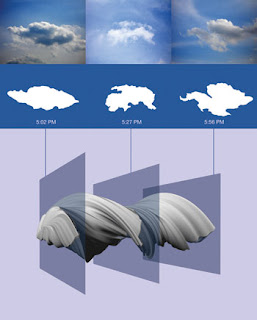Go to http://philoctetes.org/Home/ to see the home page of Philoctetes, full name: The Philoctetes Center for The Multidisciplinary Study of Imagination
The Center is a bit controversial in Mathematical Physicist circles as one of the Disciplines it allows to be “in play” is Theology. This is partly because it seems to be at least partially funded by The Templeton Foundation, itself a controversial organization as Templeton’s mission appears to be to unify Religion and Science, i.e., God and Humanity, via Physics and Mathematics, and Theology.
There was no Theology brought up at the Roundtable discussion Saturday afternoon, at least none that I noticed (I was 20 minutes late in arriving thanks to New York City traffic and the first snowfall of the season).
I first became aware of this interesting place from a blarticle at Peter Woit’s “Not Even Wrong” blog. Both Woit and his regular posters are critical of Theology, definitely critical of Templeton, and of a previous Roundtable Discussion held at Philoctetes on the subject of “Mathematics and Religion” which included Max Tegmark and Brian Greene on the panel.
My primary reason to attend was to meet Scientific American Senior Editor George Musser, which I did, and as a wonderful unexpected bonus, met my first Scientist in the flesh: Dr. Michael Shara of The American Museum of Natural history.
Shara dominated the discussion for the most part, and wonderfully so. I enjoyed his lucid explanation of Indeterminacy, aka Heisenberg’s Uncertainty Principle, without mentioning either word or expression. Instead he remarked on the delta-E delta-T greater than or equal to Planck’s Constant aspect regarding virtual particles coming into being; and Entropy as well.
George Musser also weighed in quite a bit, explaining fundamental Physics in a nice and non-technical way.
Mark Norell, moderator and the panel's Paleontologist, weighed in on how differently other cultures measure time compared to the way we do in the West.
Olga Ast, the Artist on the panel, was difficult for me to understand because she had a strong Russian accent. She did have something to say about mirror symmetry, however, as she showed a painting of a man looking in a mirror and seeing his back, not his front, meaning I suppose we experience time in a certain way, and no other.
The discussion lasted on the order of 50 minutes, with a 45 minute question-and-answer session following. All was interesting.
One of the most interesting questions was regarding the paradox that length and time can be thought of as being infinite, in the sense that if one divided time in half (say, a second into a half-second, then into a quarter second, etc.) then one would never reach the end of the road or the last moment of one's life. Shara politely shot that down by mentioning the graininess of space and time, meaning you eventually reach an atomic time-span that is fundamental and cannot be further divided, such that one "Planck-time" or "Planck-length" later, you do in fact reach the end of your road, or your life.
Overall it was an enjoyable experience. I have no idea if Philoctetes plans to issue an on-line video of the discussion as I do not know Philoctetes’ policies at the moment regarding same.
Edward Johnston, Looking at Clouds -Variation 2

No comments:
Post a Comment